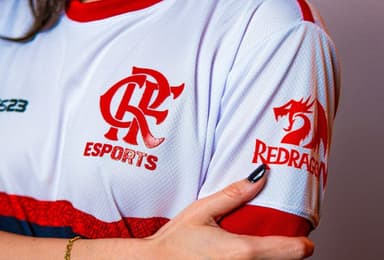A Brief History Of eSports : How Did It Become World's Leading Industry

A once-obscure subculture, Electronic Sports (also referred to as Esports) has grown into a major force in the worlds of traditional sports and entertainment. Just over $1.08 billion (a 50% increase from the previous year) was the global esports market in 2021, and it is expected to keep growing with technological and social advances.
As a result, the total amount wagered on esports matches is expected to rise to $16 billion over the next few years. Take a look at the history of esports, how they’ve risen so quickly in competitive circles, and what the future holds for this ever-expanding phenomenon.
What Are Esports, And How Do They Differ From Traditional Sports?
Esports is a type of competition in which professional gamers compete either individually or in teams. Organized video game contests have been around for a long time, but they’ve only recently become more popular due to significant advancements in gameplay, streaming platforms, interactive gaming, and organized play in the industry. Investing has also grown in popularity as a result of this.
Some of the most popular Esports tournaments include:
- FPS tournaments like Halo, Call of Duty, Fortnite and Apex Legends are commonplace.
- FIFA, Pro Evo Soccer, Madden, and NBA2K tournaments.
- eSports like Dota 2 and League of Legends, which feature massively multiplayer online battle arenas (MOBAs).
- Street Fighter, Mortal Kombat, and the Super Smash Bros. series are all used in these tournaments.
- Card games and real-time strategy games round out the schedule.
History of Esports: A Quick Overview
The First Ever Video Game Tournament
There were thousands of players competing for the highest scores in games like Super Mario Bros., Tetris, and Rad Racers at the first major video game event, the Nintendo World Championships, in 1990. In comparison to today’s big prizes, the $10,000 prize fund was the first of its kind and laid the groundwork for larger competitions to come.
Online Multiplayer Games
Early tournaments simply compared players’ scores, but multiplayer games pitted them against each other in real-time – with Capcom’s Street Fighter kicking off the competitive fighting genre. It wasn’t until 1996 that Doom and Quake, two of the most popular online multiplayer shooters of all time, were released, and they quickly became the most popular games of all time, both for casual play and competitive play.
A Trip To The Big Leagues
When Major League Gaming (MLG) began hosting tournaments in a variety of video game genres back in 2002, it was the first time that a video game league had ever been broadcast on television. Rivalries, storylines, and fan support grew in the same way as in conventional sports.
In Asia, a strategy game called Starcraft (released in 1998) was becoming a competitive scene of its own. Professional teams and players began to appear, and the concept of full-time competitive gamers was normalized, just as it had in the US. These teams and players had corporate sponsorships, promotional partnerships, and other forms of financial support.
Streaming
Esports’ growth was accelerated by the rise of streaming, which provided fans and viewers with more options and a more convenient way to watch the games. Content creators and professional gamers had their own channels within the wider platforms, allowing them to create content for their fans without having to rely on media partners or television producers.
A new breed of competitive micro-communities has emerged in games that were previously shrouded in obscurity, thanks to the explosion of streaming competitions across a wide range of genres (not just sports or first-person shooters).
A Partnership Between Developers And Clients
The Korean Starcraft league and the MLG’s own tournaments’ success showed video game developers that there was a significant market for their products. Heavyweights like Call of Duty and Halo began to include specific competitive game-types in their retail releases, with ranked systems, leaderboards and more. As a result, both casual players and streamers gained an advantage in the race to the top.
The Winner Is Twitch
In 2011, Twitch’s introduction allowed the niche to go from a passion to a profession for the best players, despite the fact that MLG was the first to create Esports Leagues. Players can make a career out of streaming gameplay and tournaments if they manage and stream their own gameplay and tournaments. A side effect of this exposure was the rapid discovery by game studios that they needed to keep up with the demands of both their players and their viewers by continuously improving graphics and gameplay loops and releasing new content.
However, with the use of VPN, Twitch became even better as VPN provides better internet connection and security. But what is a VPN meaning and what what is it used for? Now a VPN (virtual private network) is one of the best ways to protect your online privacy. When you shop, bank, or browse the web anonymously, a VPN protects your connection. For gaming on twitch, it is even better to use a VPN like VeePN.
Recent Tournaments In Major Sports
The prize pools for esports events, which have only been around for a few decades, are on par with those of more traditional sporting events. At the time, the prize pool for the 2011 League of Legends World Championship was the largest in history at $2 million dollars. A total prize pool totaling $30 million was broken only eight years later at the Fortnite World Cup, making it the most lucrative tournament in gaming history. In comparison to Novak Djokovic’s 2.3 million dollar prize money, one player, known as “Bugha,” took home over $3 million in prize money.
Valve’s annual Dota 2 global championship has broken the record for esports prize pools for the tenth year in a row. Despite a $1.6 million prize pool in 2011 and 2012, the tournament has since become the most successful example of crowdfunded prize pools in the history of esports.
Our Predictions For The Future Of Esports
Mobile Continues To Grow
Mobile gaming’s low entry barrier has drawn tens of millions of new esports fans worldwide after years of PC and console dominance. With use of VPNs for a better gaming experience, 5G technology and more powerful mobile device specifications are expected to continue the upward adoption trend.
Both Sports And Esports Are Intertwined
For years, esports have attracted sponsorships and attention from sports brands because of their youthful demographics. Many aspects of traditional sports, including sponsorships, merchandise, and cross-promotion between real-world and virtual competitions have certainly had an impact on our community.
Co-streaming
Since all parties benefit from a unified effort, the three parties involved are becoming more cooperative. Developers can advertise their games, and brands can get their products in front of more relevant customers while streamers raise their public profile through gaming sessions. The collaboration between these parties will only deepen in the future.
There Are More Games To Play
New AAA titles costing millions of dollars are always on the horizon in the gaming industry. Many of these games, including Valorant, PUBG, and Rainbow Six: Siege, will make their way into the esports scene.
iGaming Investments
iGaming operators are going to spend a lot more money on their betting infrastructure as the industry becomes more mainstream. Esports broadcasting and gambling will see a lot more interest from operators, which will lead to a rise in player numbers and higher adoption rates.
Gambling On Esports Has Become A Distinct Business Entity.
As more and more jurisdictions accept e-sports as legitimate forms of gambling, the industry will grow at a faster rate. Recently, the first-of-their-kind online gaming and gambling company was granted permission to begin accepting bets in New Jersey. This means that esports Entertainment Group can now accept wagers on esports from New Jersey residents after the director of the state’s Division of Gaming Enforcement accepted a transactional waiver on their behalf.















